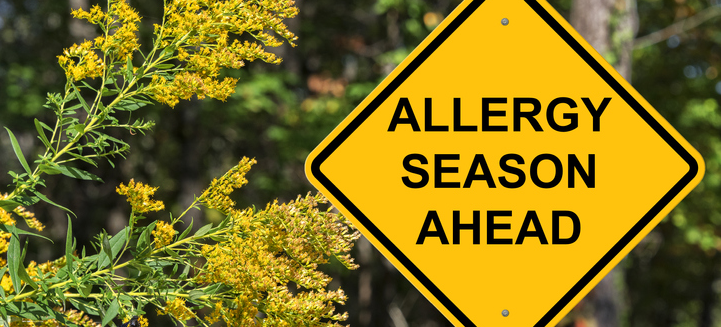The Hidden Connection Between Constipation and Arthritis
Osteoarthritis is a disease characterized by degeneration of cartilage and its underlying bone within a joint as well as bony overgrowth. The breakdown of these tissues eventually leads to pain and joint stiffness. According to the CDC, osteoarthritis (OA) affects 13.9% of adults aged 25 and older and 33.6% (12.4 million) of those 65+, for a total affected U.S. population of 26.9 million adults.
While its causes of OA are not traditionally understood in the allopathic model, there are some well-understood connections between digestive function and arthritis in functional medicine. These connections have mainly to do with liver and gallbladder function. That’s because they play a critical role in both detoxification and elimination.
Below you’ll learn about how the liver and gallbladder affect digestion and what you can do make those organs work well. If your goal is to reduce arthritis symptoms naturally, then read on.
Is Your Liver Toxic?
The liver is one of the primary organs of detoxification. It is responsible for handling both environmental and food toxins as well breaking down medications. It also plays important roles in blood sugar regulation and hormone metabolism.
The U.S diet, which may include soft drinks, partially hydrogenated vegetable oils, and insufficient vegetables, creates an incredible burden on the liver. The net effect: The liver can’t function properly and toxins circulate in the blood. One result is constipation.
Bile: A Digestive Lubricant
It may be small, but the gallbladder is a very important organ. When you eat foods that contain fat, the gallbladder secretes bile to help digest it. Bile also acts as a lubricant, aiding bowel movement. When the bile becomes thick, it can form gallstones, and constipation may ensue. The best way to ensure thin bile is by eating beets (cooked or raw) once a day or every other day. For my patients who wont eat beets, I have a supplement in pill form.
Guanidine: The Hidden Connection
Guanidine is a toxin found abundantly in the liver of arthritics. It accumulates as a result of constipation or cell trauma. It can move from the liver into the blood stream where it affects the pH of blood. Because it is an alkaline substance, it causes calcium to move out of the blood and create calcium deposits in the joints. Note, this is just one cause of arthritis, but is worth mentioning because it is easily addressed by improving digestion.
What to Do?
First, it’s important to add good foods to your diet. Even if you don’t like vegetables, your body does! Eat at least three servings (a large handful) of vegetables daily, and 1-2 servings of fruit (berries are ideal). Second, eliminate soft drinks and any drink with fructose in it. This type of sugar must be processed by your liver, which prevents it from performing its more critical tasks of detoxification. Third, begin incorporating foods and herbs as mentioned below. Healthy bowel movements should occur 1-3x per day. Anything less indicates a back up in your system.

Foods for Constipation
There are several categories for foods that help with constipation: bulking agents, lubricants, and those that promote movement; BLM for short. Bulking foods include psyllium husks (Metamucil), vegetable fibers, apples, and carrots. Lubricants include oil-rich foods like walnuts, pine nuts, and almonds; sesame oil, beets, and prunes. Moving foods include cabbage, papaya, figs, and asparagus. An ideal diet will incorporate foods from each of these groups. For a complete list, please contact me at tray@peninsulaacupuncture.com.
Herbs for Constipation
As with foods, herbs can be categorized by their function. Broadly, herbs for constipation may be classified as demulcents (soothing) and laxative. Herbs I commonly use in my practice for soothing an irritated intestinal tract include marshmallow root, licorice root, and chia seeds. Laxative herbs include dandelion root, rhubarb root, and Cascara sagrada. The laxative herbs are only meant to be used short term.
Putting it All Together
In general, arthritis is viewed as an inflammatory condition. So it’s important to avoid pro-inflammatory foods like sugar and white flour. French fries or any food with rancid oils will create inflammation in the liver.
Improving elimination is a critical first step towards overall health and reduction of OA symptoms. I also suggest herbs like turmeric, ginger, celery seed, and Boswellia for reducing inflammation. Exercise and maintaining a healthy weight will also go miles towards reducing arthritis symptoms as the body will always function better under a lighter load.
 Constipating Foods
Constipating Foods
- Cheeses
- Beans
- Salts
- Coffee & Stimulants (dehydrating)
- Flour products
- Many OTC drugs
- Wheat
- Meats
Tums- More Harm than Good?
Heartburn or indigestion are generally a result of insufficient acidity in the stomach. In fact, stomach acid is well known to decline with age. When food is insufficiently digested in the stomach a process called putrefaction occurs. Putrefaction (rotting) produces organic acids, which cause heartburn or indigestion. Antacids like Tums will temporarily relieve the problem, but ultimately make the stomach more alkaline. You want an acidic stomach for digestion to work properly. An added irony of Tums with calcium is that your stomach needs acid (HCL) to absorb calcium. Since Tums is reducing acidity, it makes the calcium even more difficult to absorb.







